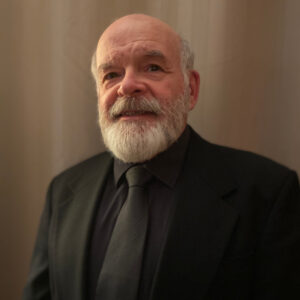Two individuals renowned for professional and community leadership will be awarded honorary degrees by the University of King’s College at its 234th Encaenia on May 23, 2024. Celebrated investigative reporter Connie Walker, and community leader and legendary basketball coach Bev Greenlaw, BA’80, have been selected as recipients.
 Connie Walker
Connie Walker
Through her career as an investigative journalist, Connie Walker (Cree), a member of the Okanese First Nation in Saskatchewan, has led the way on raising the profile of some of the most egregious injustices in North America, particularly those endured by Indigenous Peoples. Walker’s work, which includes the podcast Stolen: The Search for Jermain and Stolen: Surviving St. Michael’s, has exposed the crisis of violence in Indigenous communities and the devastating impacts of intergenerational trauma stemming from Indian Residential Schools in Canada and the United States.
Walker has spent most of her decades-long investigative career focused on missing and murdered Indigenous women. While a reporter with the CBC, in 2013 Walker co-created and was the lead reporter for the CBC Indigenous Unit.
In 2016, she was part of a team of reporters who built a database of unsolved cases of missing and murdered Indigenous women in a digital project that was a finalist for the prestigious Michener Award and received the Radio Television Digital News Association (RTDNA) Adrienne Clarkson Award.
As a Senior Reporter in the CBC’s Investigative Unit, Walker began her work in podcasting, a format supporting the depth of investigation and textured storytelling that have become her hallmarks. In 2016 she launched the podcast Missing & Murdered. The podcast’s first two series, Who Killed Alberta Williams and Finding Cleo, deftly navigated the complex issues at the root of the violence facing Indigenous women and girls, and established Walker’s voice as one both trusted and sought after by audiences around the world. Finding Cleo won the inaugural Best Serialized Story award at the Third Coast International Audio festival, the Canadian Journalism Foundation’s Jackman Award and a Canadian Screen Award. It was featured in Columbia Journalism Review, Rolling Stone, Teen Vogue, Chatelaine and was named one of the Best Podcasts of 2018 by Apple Canada.
In 2019, Walker received the Ochberg Fellowship from The Dart Center for Journalism and Trauma at Columbia University. The same year, she delivered the 38th Annual James M. Minifie Lecture at the University of Regina.
Since 2020, Walker has continued this work at Gimlet Media and in 2021, she launched a new series, Stolen. The first season, titled The Search for Jermain, investigated the case of Jermain Charlo, a young Indigenous mother who went missing in 2018. The podcast’s second season, Surviving St. Michael’s, delivered one of the most comprehensive investigations ever conducted into a single residential school. Over ten months of reporting, Walker and her team uncovered more than 200 allegations of sexual abuse against priests, nuns, and staff members at St. Michael’s Indian Residential School in Duck Lake, Sask. As part of the investigation, Walker developed a modern-day oral history project that recorded testimony from survivors of St. Michael’s.
In 2023, the impact of Walker’s reporting was recognized at the highest level when Stolen: Surviving St. Michael’s won a Pulitzer Prize in the Audio Reporting Category and a Peabody Award in the Podcast and Radio Category, making it the first podcast to win both awards in the same year. The podcast was further recognized with an Edward R. Murrow Award, an Alfred I. duPont-Columbia Award, a National Magazine Award (Ellie) in Podcasting from the American Society of Magazine Editors, an International Documentary Association Award for Best Multi-Part Audio Documentary or Series, an Adweek Audio Award for Best True Crime Podcast, and an honorable mention from the Dart Awards for Excellence in Coverage of Trauma. The series was also named one of the best podcasts of the year by The New Yorker, The Atlantic, Esquire and Vulture.
For her determination in seeking justice where it has been denied, and her dedication to telling the stories that must be told for true reconciliation to be possible, Connie Walker will be awarded a Doctor of Civil Law.
Bev Greenlaw
 Growing up in St. Stephen, N.B., Bev Greenlaw found sanctuary in sport and libraries. In 1969, a University of King’s College bursary drew him to Nova Scotia, where he became a transformative basketball coach and visionary leader.
Growing up in St. Stephen, N.B., Bev Greenlaw found sanctuary in sport and libraries. In 1969, a University of King’s College bursary drew him to Nova Scotia, where he became a transformative basketball coach and visionary leader.
A creative point-guard, Greenlaw helped King’s win the 1970 Nova Scotia College Conference (NSCC) basketball championship. Selected for Nova Scotia’s 1971 Canada Games team, injury intervened. In 1987, he returned to coach Nova Scotia to its sole Canada Games basketball gold medal.
In September 1970, a chance encounter with a King’s guest speaker led Greenlaw to North End Halifax and New Options, a nascent YMCA program that began as an alternative school for working class youth, then evolved into a uniquely diverse, innovative, boundary-testing agent for social change. Once in the neighbourhood, he was recruited to help coach a Community Y boys’ basketball team, initiating a wide-ranging, influential coaching career that continues today.
The Community Y basketball program became legendary: among Canada’s best, it was respected nationwide. Greenlaw and his fellow coaches’ impact went beyond basketball. Respect, belief in oneself, academic focus and a strong sense of community responsibility were instilled daily. Community YMCA members began experiencing unprecedented levels of academic, athletic, societal and civic success.
Equity, diversity and inclusion, now standard organizational watchwords, were central to Greenlaw’s ethos from the early 1970s. Halifax Chief of Police and King’s alum Don MacLean, who played for Greenlaw at the Community Y and at King’s, describes Greenlaw’s “living, breathing practice of inclusion-diversity as a way of life.”
In 1979, Athletics Director Rod Shoveller recruited Greenlaw to coach King’s men’s basketball. Greenlaw accepted, with the proviso that he could continue his volunteer coaching at the Community Y. When Shoveller moved to the Technical University of Nova Scotia, Greenlaw became Athletics Director, rebranding King’s teams as “Blue Devils.” Later, at Dalhousie, Greenlaw founded and named a major tournament after Shoveller.
Greenlaw’s effect on King’s athletics was profound. To this day, the students he coached cherish the guidance he offered. Numerous alumni from this period point to his formative influence on their character, encouraging cooperation, commitment, responsibility and integrity. During this time, student athletic engagement increased dramatically. In 1979, King’s fielded teams in three sports: by 1987, over a third of students represented King’s on over a dozen teams, alongside a thriving intramural program.
At King’s, as ever, Greenlaw was a force for broader change: in 1980, he convinced the Canadian Collegiate Athletics Association (CCAA) to admit King’s and Mount Saint Vincent University as its first degree-granting institutions, transforming the national landscape of university and college athletics. Greenlaw later joined the CCAA Executive.
Blue Devils men’s basketball became a nationally recognized program, bringing first-ever national top-10 rankings, individual All Canadians, six straight NSCC finals, and multiple NSCC Coach of the Year awards. In 1987, with an undefeated, #2 nationally ranked team, Greenlaw was named CCAA National Coach of the Year. That same year, his Nova Scotian men’s basketball team’s Canada Games gold medal earned the team and Greenlaw, Sport Nova Scotia’s Ricoh Team of the Year and Coach of the Year awards. In 2005, the team was inducted into Nova Scotia’s Sports Hall of Fame.
In 2003, Greenlaw began coaching girls, building championship teams and developmental programs for girls and women, before being recruited to coach the Acadia Axewomen. He guided Acadia University to its first women’s basketball championship in 61 years, developing their first All Canadians, and helping several Axewomen go on to play professionally. He coached two Basketball Nova Scotia Under-17 Girls teams in Canada Basketball Nationals, capturing bronze in 2007, and unprecedented silver in 2012, earning Sport Nova Scotia’s IKON Team of the Year.
Greenlaw’s singular contributions to coaching in Canada were recognized in 2022 with his induction into the CCAA Hall of Fame.
Recognized throughout Nova Scotia and across the country as a builder—of communities, of teams, and of young people—for his contributions to athletics and community development, Bev Greenlaw will be awarded a Doctor of Civil Law.

